
What do we finance?
The FTM supports strategic initiatives defined by the communities with the potential to be replicable, scalable or to become public policy

Climate Change mitigation and adaptation.

Biodiversity conservation and sustainable manageme

Governance and rights of Indigenous Peoples and Local Communities.

Sustainable indigenous and community initiatives.
Three Grant Financing Instruments are adapted to the different investment realities in our territories
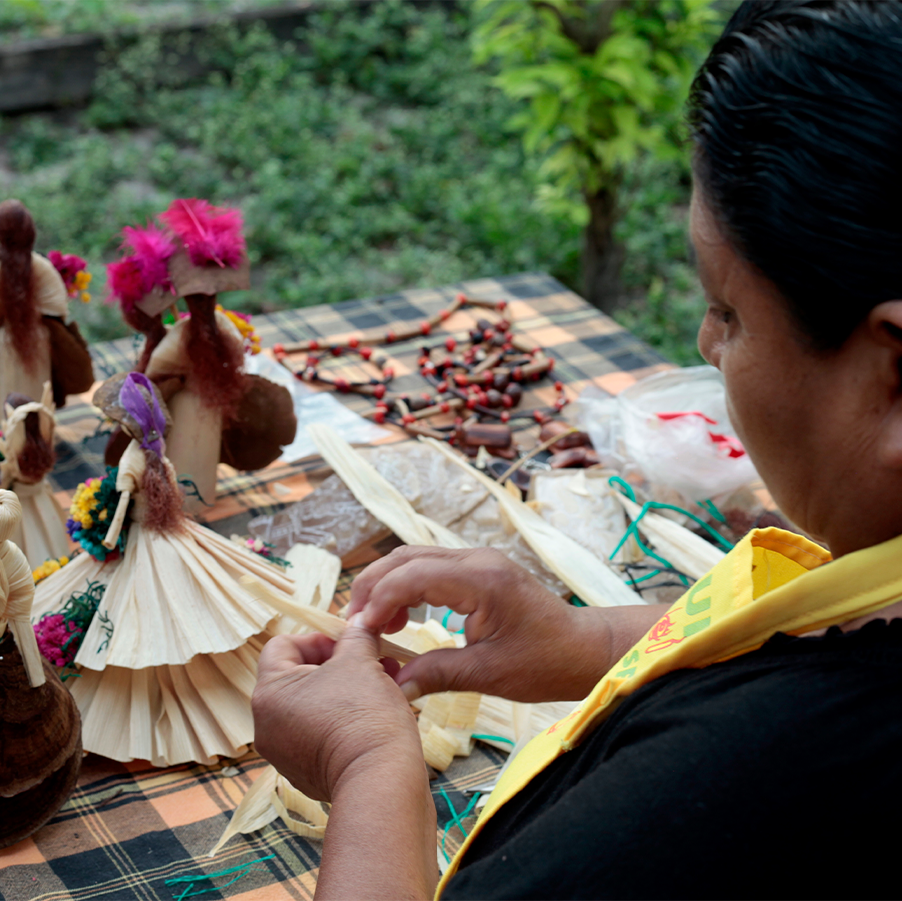
Small grant
(USD 10K to USD 50K).
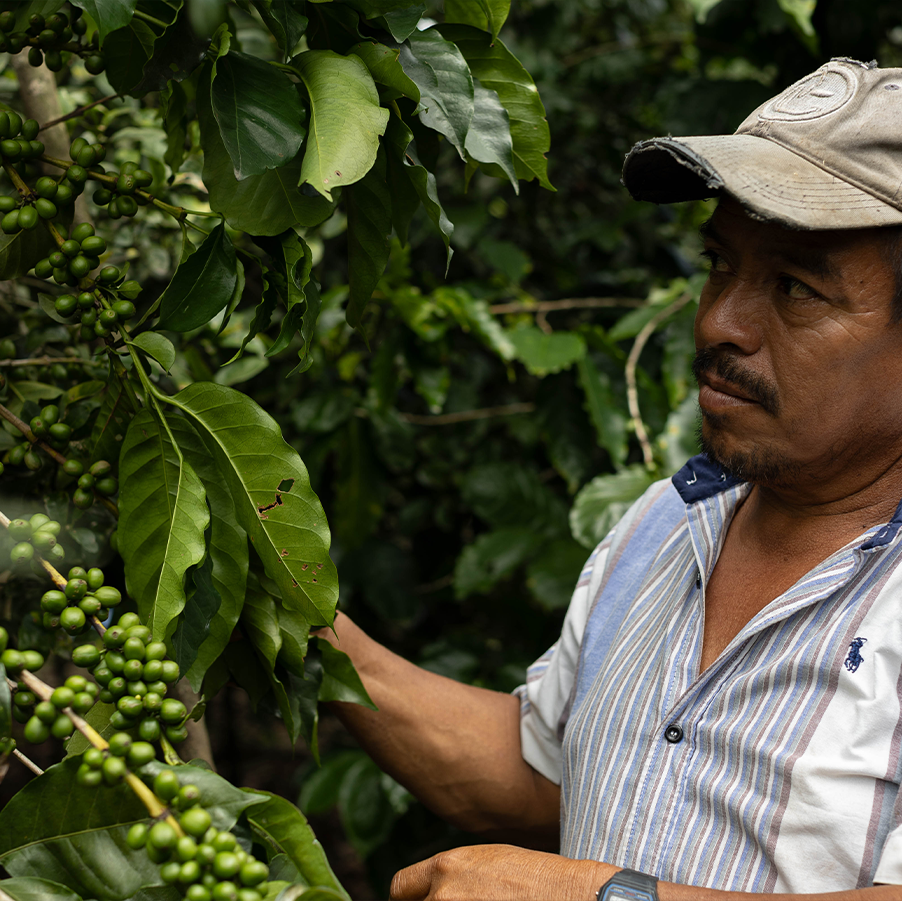
Large grant
(Starting at USD 51K).
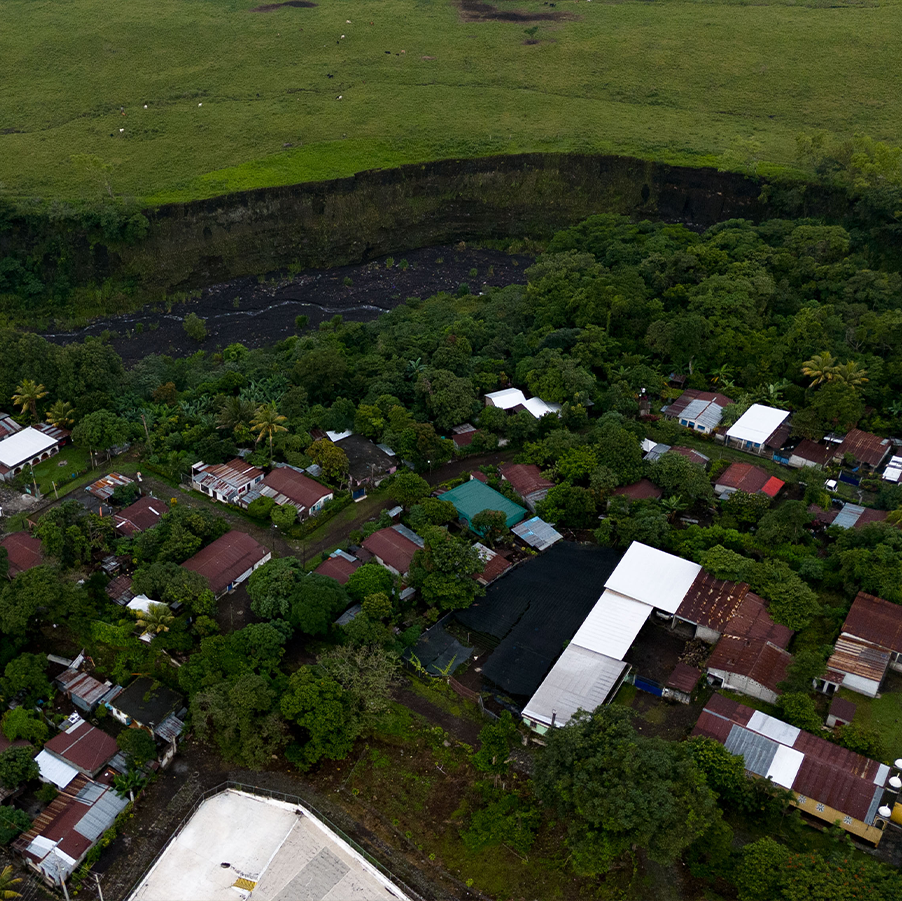
Agile, rapid-response grants
for emergencies.
Financed initiatives
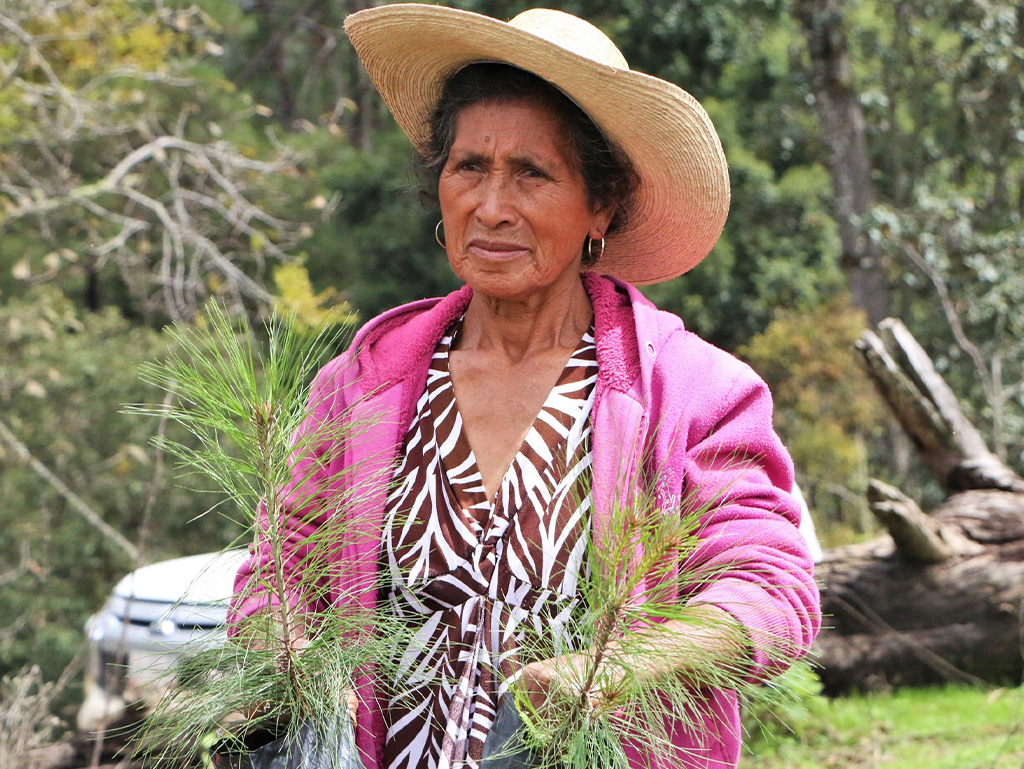
Women promoting forest management, food security, and territorial governance of the ejidos in the Sierra Region, Guerrero, Mexico.
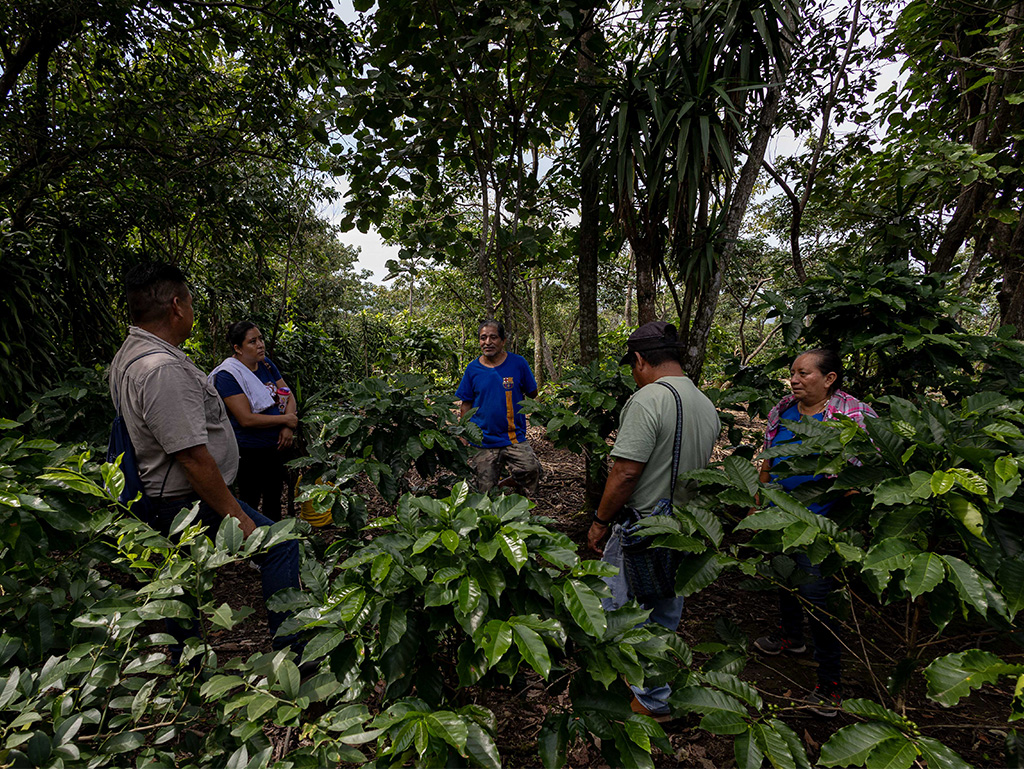
Promoting a sustainable community economy as a mechanism for conservation and protection of natural resources in the Indigenous Community of La Trinidad, Guatemala.

Strengthening governance and conserving indigenous ways of life to protect forests in Costa Rica.
Direct territorial financing:
Empowering Indigenous Peoples and Local Communities, protecting forests and biodiversity.
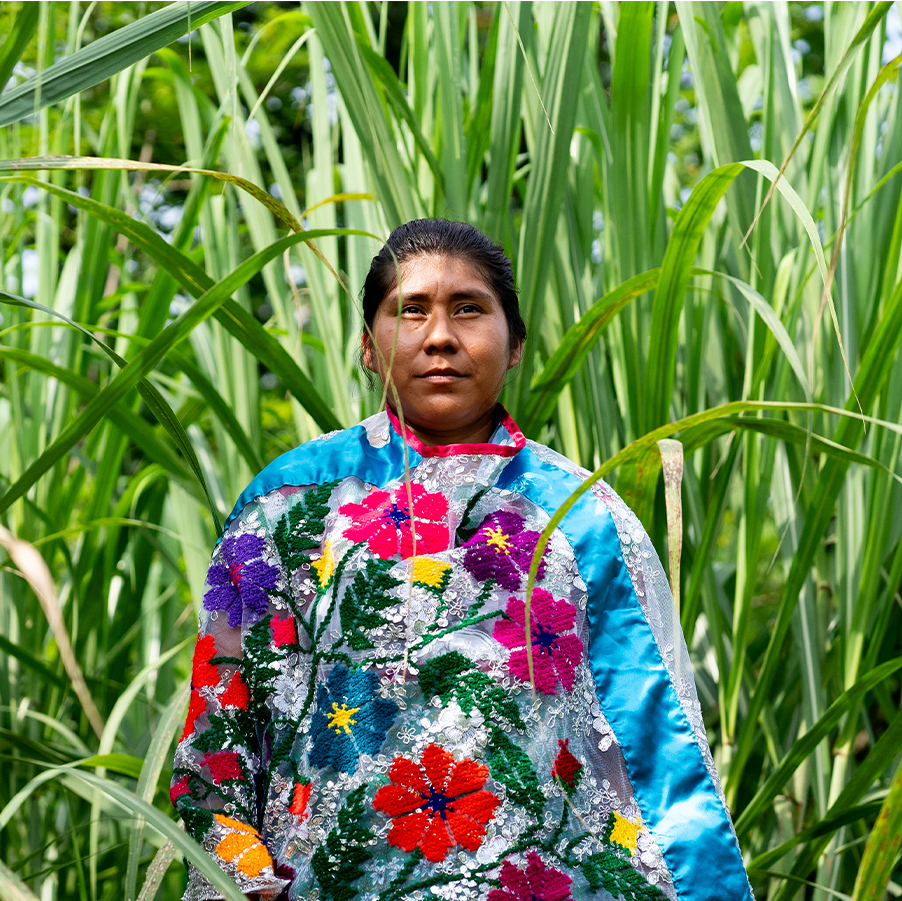
Increasing direct territorial financing is key to strengthening IPLC rights and territory-anchored strategies pdiv>
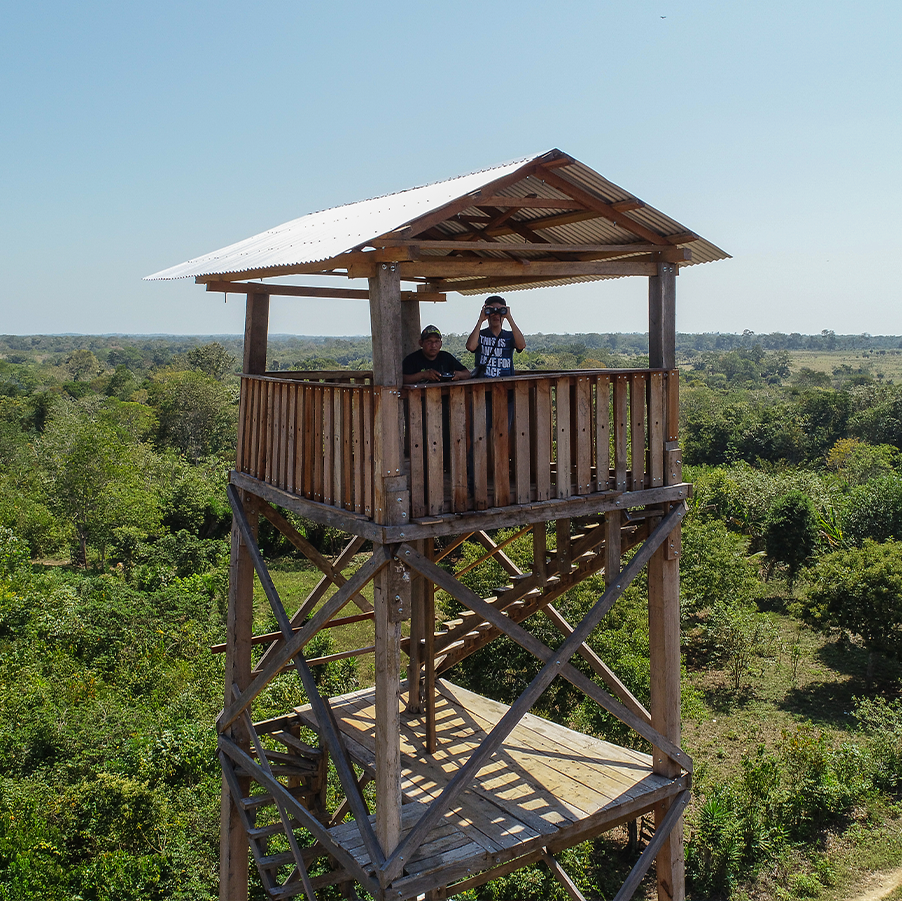
In Mesoamerica, to speak about forests and biodiversity implies speaking about the rights of Indigenous Peoples and Local Communities.
Results
From 2021 to 2024:
Three Grant Financing Instruments are adapted to the different investment realities in our territories

Small grant
(USD 10k to USD 50K).

Large grant
(Starting at USD 51K).

Agile, rapid-response grants
for emergencies.
Financed initiatives
Women-driven forest garden entrepreneurship in Honduras.
Establishment of a community biointensive garden in Moskitia, Honduras.
Marketing of products at fairs of the Agroecological Farmers Network in Texcoco, Mexico.
Direct territorial financing:
Empowering Indigenous Peoples and Local Communities, protecting forests and biodiversity.
Less than 1% of global climate finance goes directly to Indigenous Peoples and Local Communities (IPLCs),Despite the fact that they are decisive actors for the protection of forests and biodiversity.
The Mesoamerican Alliance of Peoples and Forests (AMPB) manages 24% of the region’s forests, which holds 26% of the total carbon stored.
Results
First cycle of projects up to 2022::
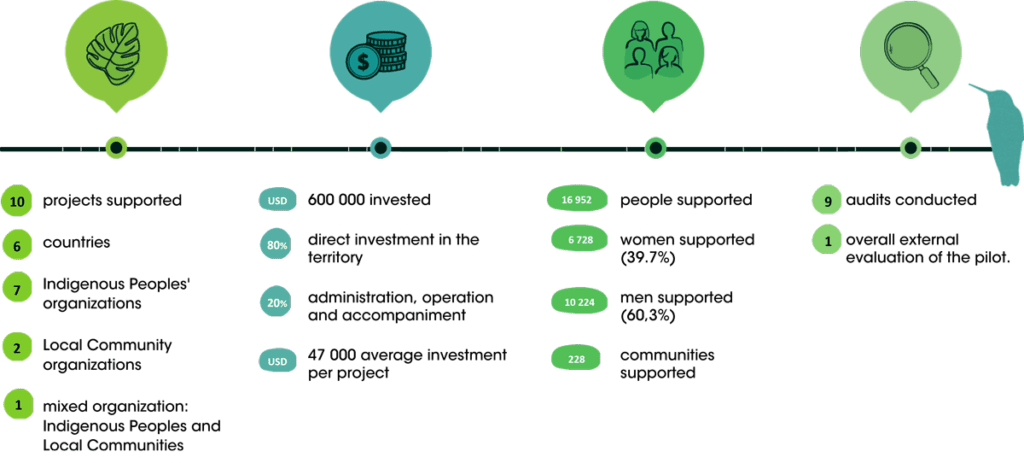
ACOFOPin Petén, Guatemala was supported to develop its advocacy process and achieved the renewal of 9 forestry concessions and the granting of two new concessions for 25 more years, respectively.
RIBCAin Costa Rica promoted the executive decree of the general consultation mechanism, a legal instrument for institutions to carry out consultations under the principle of free, prior and informed consent (FPIC).
25 entrepreneurial ventures supported on food self-sufficiency
4 ventures supported on value-added timber products
6 enterprises supported on alternative tourism
8 community forestry initiatives supported.
